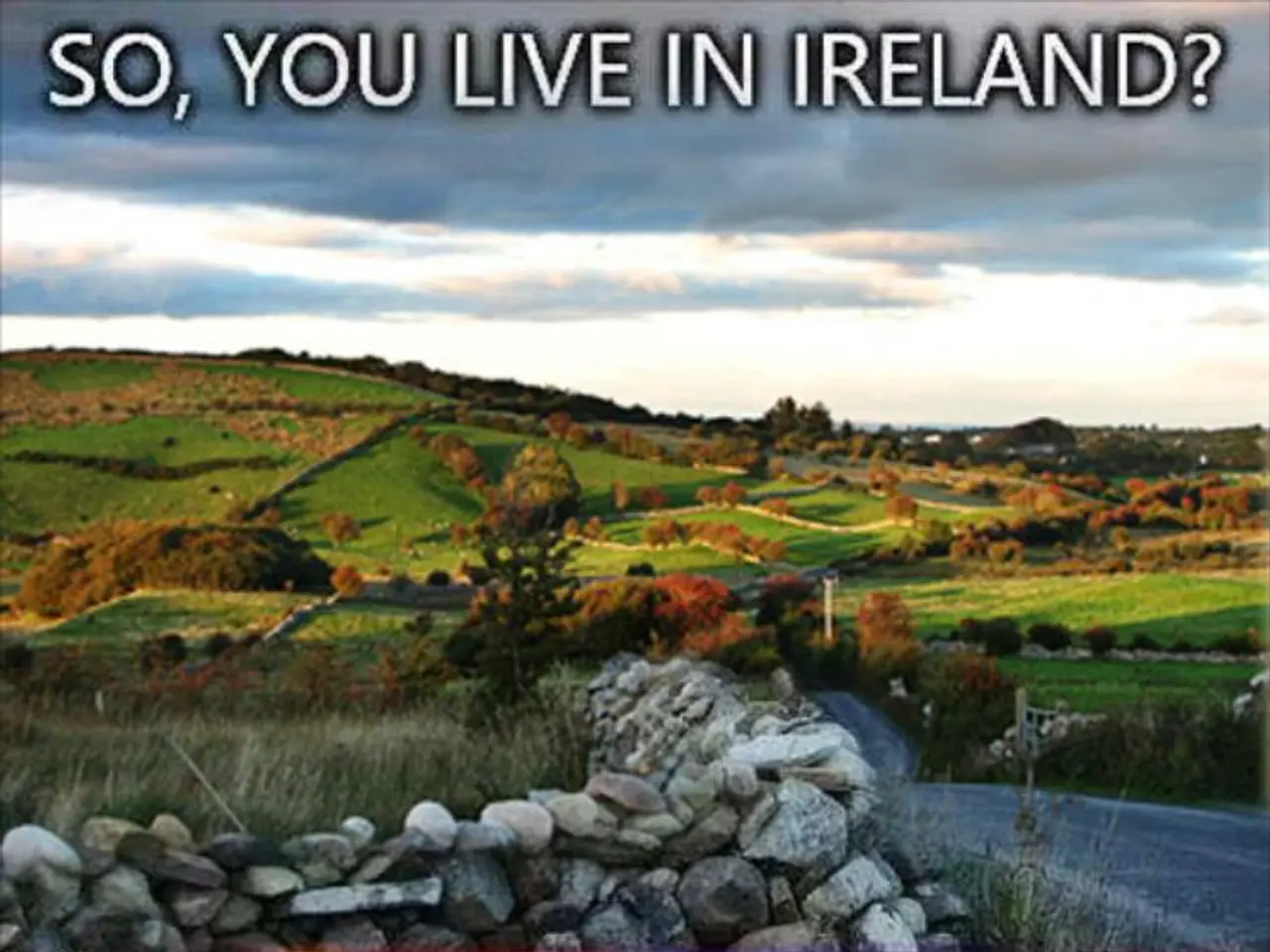Europe's Sizzling Heatwave: England Struggles with Water Shortages Amidsts Prolonged Drought Conditions - Prolonged drought in Europe causes water scarcity concerns in England
In the scorching heat of summer, Europe is grappling with a severe water crisis. A new development has seen a fire break out near Tarifa, Spain, just after a wildfire in the same region was brought under control [1]. Meanwhile, the prolonged heatwaves have significantly exacerbated water scarcity across England and beyond, causing reservoirs and river flows to fall well below average levels for this time of year.
The situation in England is particularly dire. Reservoir levels have dropped to around 67.7% full compared to the typical 80.5% in early August. Some reservoirs, such as Blithfield in Staffordshire and Chew Valley Lake in Somerset, are less than half full [1]. This scarcity is causing widespread environmental harm, including reduced crop yields, diminished livestock feed, damage to wetlands and river ecosystems, and an increased wildfire risk [1][4].
The intense heat has also reduced river flows that normally supply reservoirs, forcing water companies to urge residents to limit water use to essential purposes only [2]. This situation mirrors a drought status, with the UK facing its sixth driest spring on record, compounding the ongoing heat stress [5].
Across Europe, similar patterns of water shortage related to heat stress are being reported. Extreme heatwaves are severely stressing power grids and energy systems, partly because thermal power plants rely on river water for cooling [3].
Key statistics and impacts: - Reservoir levels in England are about 12.8 percentage points below normal for early August (67.7% vs. 80.5%) [1]. - Heatwaves are driving temperatures above 30°C repeatedly, with peaks around 34°C recorded in southern England, and over 40°C in parts of southern Europe [2][3]. - The UK's water scarcity situation is described as "unprecedented" by regional reports, with five regions especially affected by critically low water reserves [4]. - The drought impacts include agriculture (mixed yields, livestock feed shortages), ecosystem degradation, and heightened wildfire risks [1][5].
The ongoing heatwave has also led to wildfires in Spain, with strong winds of up to 70 kilometers per hour spreading the flames in the Madrid suburb of Tres Cantos. More than a thousand people were evacuated in the northwestern region of Castile and León due to around 30 wildfires [1]. Tragically, a man died in a wildfire near Madrid, marking the first fatality due to the ongoing heatwave.
Authorities in France have maintained the highest heat alert level in the southeast, with temperatures expected to reach over 36 degrees in the Paris region and up to 40 degrees in the Rhône valley. Garden watering has been banned in Yorkshire, northern England, due to water scarcity [1].
Helen Wakeham from the Environment Agency urged everyone to help reduce pressure on England's water environment. As the crisis deepens, the need for adaptive water management and infrastructure resilience in the face of intensifying climate change effects becomes increasingly urgent.
- The community is urged to reduce water use and aid in the conservation of resources amidst the unprecedented water scarcity in England due to the ongoing heatwave.
- To mitigate the effects of climate-change-induced water shortage, aid for the development of the regions, particularly in England, is essential to ensure infrastructure resilience and adaptive water management.
- As the pressing issue of water scarcity intensifies due to extreme heatwaves across Europe, focusing on environmental-science research, specifically in the areas of space-and-astronomy, could provide insights into predicting and mitigating future heatwaves and associated disaster risks.








